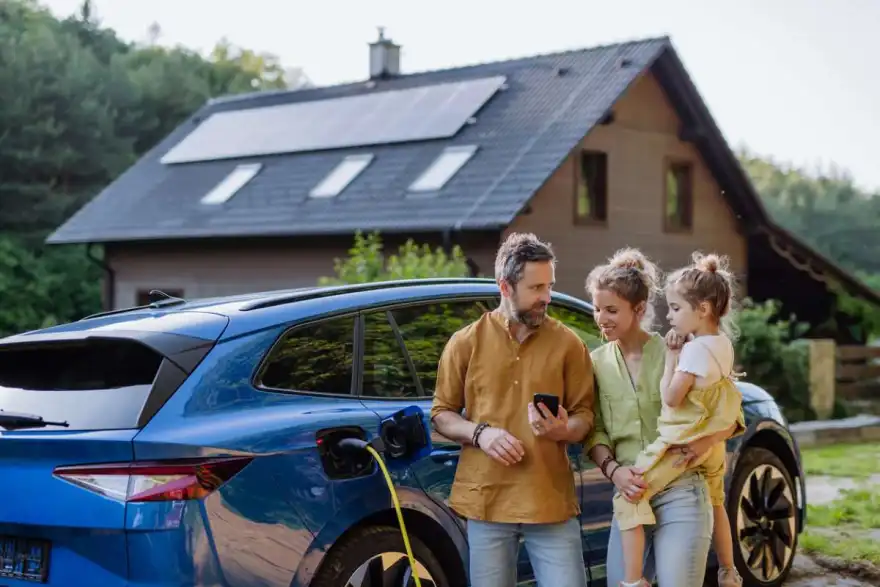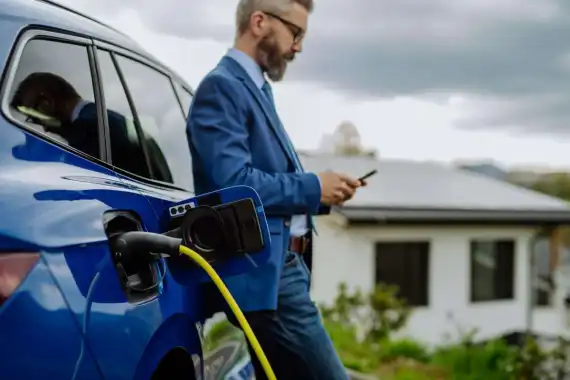
How far can you travel on a single charge in an electric vehicle (EV)?
This is a common question for first-time EV buyers. No one wants to be stranded with no charge, but is "range anxiety" a legitimate concern?
Consider this: did you think about the miles per tank before buying your petrol or diesel car? Likely not, because most buyers focus on miles per gallon (mpg). As battery technology improves, EV range becomes less of an issue.
Many people believe the average range of battery electric vehicles (BEVs) needs to increase before they’ll choose one over a petrol or diesel car.
Most EVs can handle a week's worth of commuting on a single charge. Yet, questions around EV range remain crucial when deciding on your next vehicle. Here’s some advice and simple facts to help you.
Average Electric Car Range
Currently, you can expect between 100 and 300 miles from a fully charged EV, depending on the model. Popular models in the UK include:
- Nissan Leaf: The best-selling EV in the UK. The 40kWh battery version offers up to 168 miles, while the Leaf e+ with a 62kWh battery offers up to 239 miles.
- Volkswagen ID.3: The ID.3 Pro with a 58kWh battery can travel up to 263 miles, and the ID.3 Pro S with a 77kWh battery offers up to 336 miles.
- Honda e: 137 miles of range.
- Tesla Model S Long Range: 412 miles of range.

What is Range Anxiety?
Range anxiety is the fear that an EV won't have enough range to complete a journey. This was a legitimate concern in the past, but with improved UK charging infrastructure and better battery technology, it's becoming less of an issue.
Zap-Map reports around 39,000 charging connectors at 14,500 locations in the UK as of March 2021. Rapid chargers, now numbering 10,000 at 2,800 locations, enable recharging in the time it takes to have a coffee.
Most drivers need breaks after three hours of driving, in line with the Highway Code’s advice for a 15-minute break every two hours, making it practical to recharge during these breaks. Additionally, two-thirds of UK households have off-street parking, allowing for overnight charging.
For those without this option, schemes like Co Charger let neighbours share chargers, providing a convenient solution for EV owners living in flats.
Factors Affecting EV Range
You might not achieve the manufacturer-quoted range due to several factors:
- Age of Battery: Battery capacity diminishes over time, similar to a smartphone. An American study found an average energy storage decline of 2.3% per year, meaning an EV with a 150-mile range loses about 17 miles after five years.
- Driving Style and Conditions: Speed, weather, and use of heaters can significantly affect range. For example, the Renault Zoe's range drops from 278 miles at 31mph in mild weather to 190 miles at 56mph, and further decreases in colder conditions.
- Battery Size: Larger batteries generally provide more range but add weight. Small cars like the Honda e and Mini Electric have smaller batteries for this reason.
Electric Vehicle Battery Efficiency
Evaluating an EV based solely on range is like choosing a petrol car based on fuel tank size. Miles per kilowatt-hour (miles per kWh) is the EV equivalent of mpg. Higher figures indicate more efficient cars, with Tesla Model 3, Seat Mii Electric, and Hyundai Kona Electric among the most efficient.




